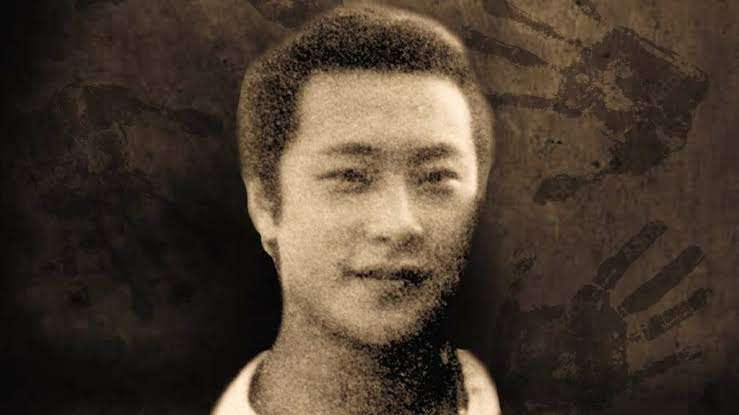
Joji Obara Biography: Age, Nationality, Wikipedia, Net Worth, Controversies
0 Posted By Haruna AyubaJoji Obara, originally born Kim Sung-jong, is a criminal known in Japan for his involvement in multiple cases of rape, drugging, and murder, which have attracted extensive media attention both domestically and internationally.
His crimes came to light following the investigation into the 2000 disappearance of Lucie Blackman, a young British woman working in Tokyo as a hostess. This case exposed a pattern of predatory behavior that allegedly involved hundreds of other victims and linked Obara to a series of assaults spanning years.
Trending Now!!:
- Jack Black Biography: Wife, Age, Net Worth, Siblings, Parents, Height, Team, Children, Awards, Movies
- How to Write a Biography About Yourself
- James Clear Biography: Books, Awards, Net Worth, Age, Parents, Height, Wife, Instagram
- Zach Bryan ex-wife, Rose Madden Biography: Age, Instagram, Wedding, Net Worth, Partner, Birthday
- Scarlet Rose Stallone Bio: Age, Height, Parents, Net Worth, Boyfriend, Siblings, College, Movies
His affluent lifestyle, funded through property investments, masked his darker activities until they were exposed in a highly publicized legal battle.
Profile
- Full name: Kim Sung-jong (known as Joji Obara)
- Date of birth: August 10, 1952
- Age: 72 years old
- Gender: Male
- Place of birth: Osaka, Japan
- Nationality: Korean-Japanese
- Profession: Former real estate investor
- Height: N/A
- Parents: N/A
- Siblings: N/A
- Spouse: N/A
- Children: N/A
- Relationship status: Single
- Religion: N/A
- Ethnicity: Korean-Japanese
- Net worth: $5 million
Early Life and Education
Joji Obara, born on August 10, 1952, in Osaka, Japan, is currently 72 years old. He was born to Zainichi Korean parents, with his father amassing wealth through investments in property and pachinko parlors. Obara moved to Tokyo to attend Keio University, where he earned dual degrees in politics and law.
Despite his elite education, he maintained an isolated personality that only intensified over time. His identity as a Korean-Japanese placed him in a complex social position, which contributed to his secluded and reclusive lifestyle.
Personal Life
Very little is publicly known about Obara’s personal relationships. Living a solitary life marked by displays of wealth, he resided in Tokyo’s Akasaka neighborhood but remained aloof and reclusive. He never married, and no close relationships were publicly documented. His isolated existence contributed to his infamy following his arrest, as neighbors and acquaintances described him as unusually aloof, with an affinity for Tokyo’s nightlife districts.
Career
Obara‘s career centered around his real estate investments, which allowed him to sustain a lavish lifestyle. He frequented hostess clubs in Tokyo’s Roppongi district, initially under the pretense of social outings but soon engaging in predatory behavior. His success in real estate afforded him the financial stability and anonymity that enabled his alleged criminal activities. His practice of befriending, drugging, and attacking victims occurred primarily in Tokyo’s nightlife scene.
Net Worth
Obara‘s net worth was once estimated to be around $5 million due to his success in real estate. However, following his arrest, much of his wealth was reportedly seized or lost during legal proceedings, and his precise net worth as of 2024 remains unverified.
Controversy
The Joji Obara case is filled with controversy, most notably surrounding the disappearance and murder of Lucie Blackman. In July 2000, Lucie, a British woman working as a hostess in Tokyo, went missing, which drew international media attention.
The investigation revealed Obara‘s involvement in drugging, raping, and, in some cases, filming his victims while they were unconscious. Investigations uncovered hundreds of video recordings, leading authorities to believe he may have attacked up to 400 women.
Obara was arrested in 2000, though initial charges were not directly linked to Lucie Blackman’s death due to insufficient forensic evidence. In 2007, he was convicted of drugging and raping several women and found guilty of causing the death of Australian national Carita Ridgway.
However, he was acquitted of Blackman’s murder, as there was a lack of direct evidence. The public reaction was one of outrage, particularly from Blackman’s family and the British public. This led to an appeal, resulting in a separate conviction for the dismemberment and abandonment of her body in 2008.
Despite Obara‘s consistent denial of all charges, public records and testimonies suggest a pattern of violent behavior, marking one of Japan’s most infamous criminal cases.
The Japanese legal system faced criticism for its handling of the trial, with critiques suggesting that systemic biases and procedural delays obstructed timely justice. His case has since sparked discussions on legal protections for foreign workers in Japan and public safety in nightlife districts.
Social Media
- N/A
NOTICE!! NOTICE!! NOTICE!!
DISCLAIMER!! : Every Biography and Content Published On TheCityCeleb are For Knowledge Reason. Don't Hesitate to Reach Out for Any Correction || Suggestion || Copyright!!CORRECT@thecityceleb.com


